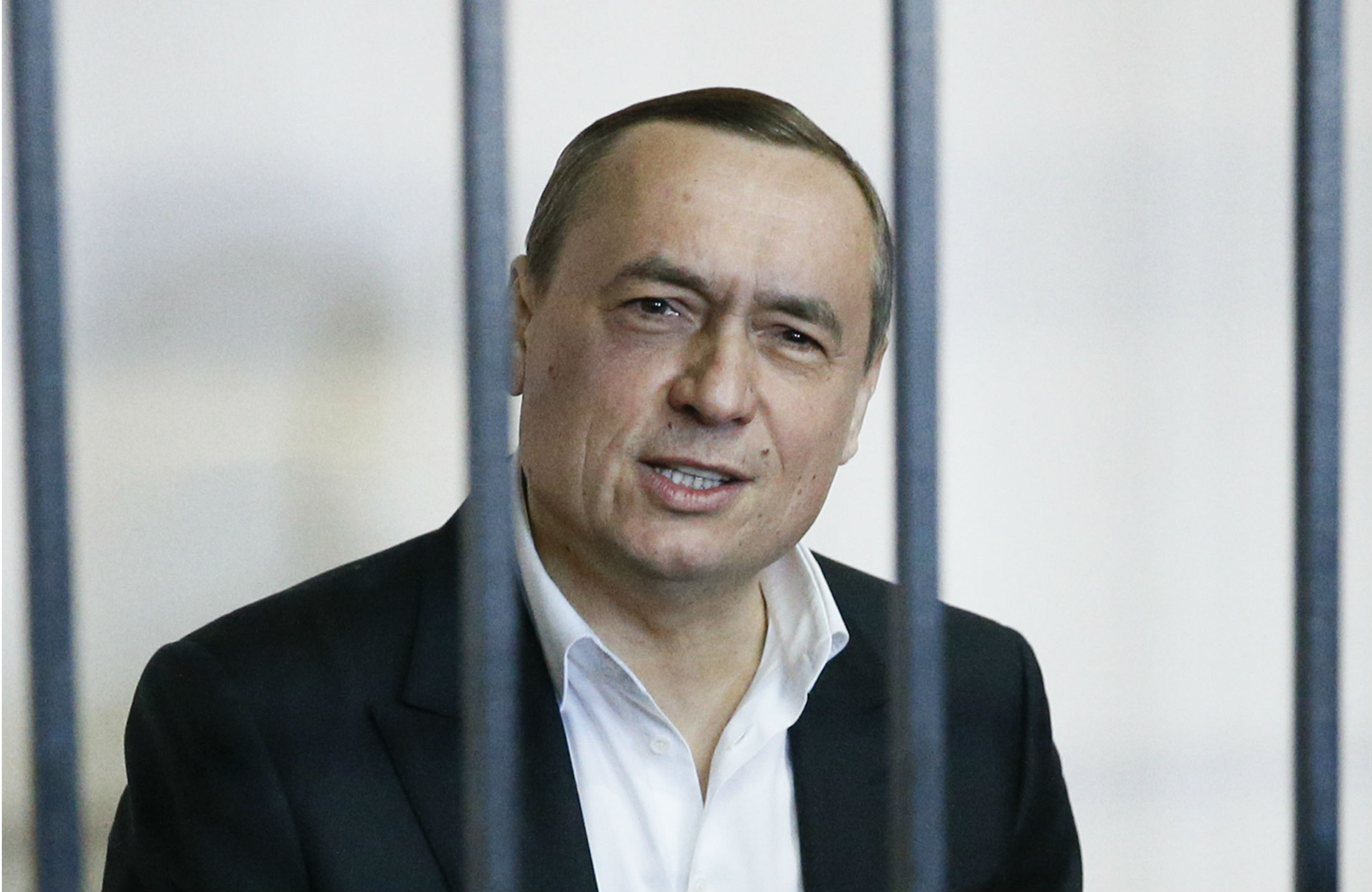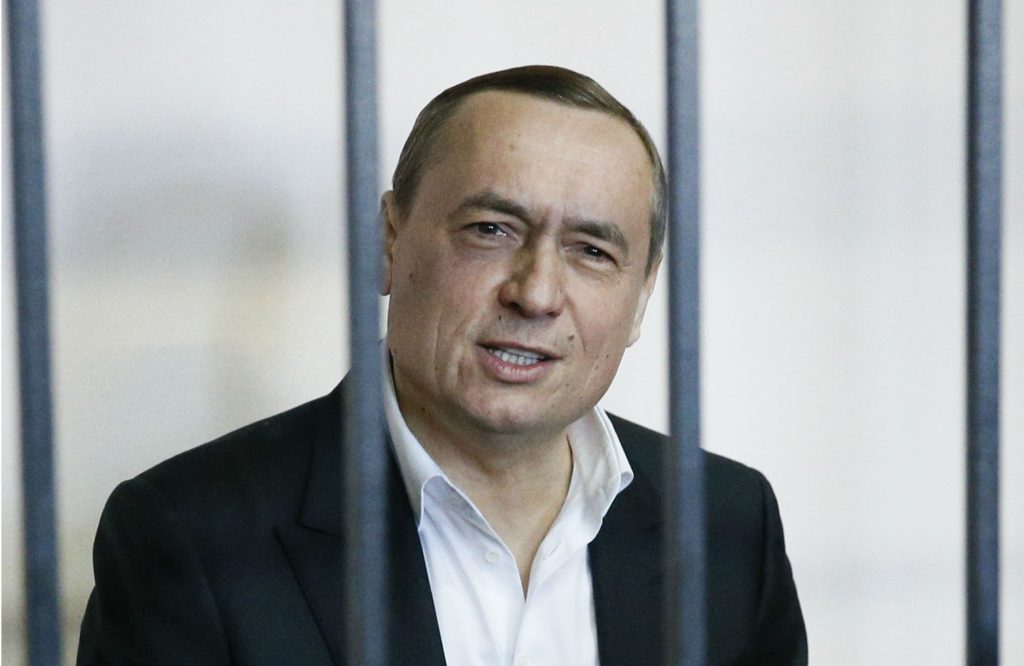 This month, the Ukrainian magazine Novoye Vremya interviewed fifty experts to assess President Petro Poroshenko’s achievements after four years. The result was a score of just six out of twelve.
This month, the Ukrainian magazine Novoye Vremya interviewed fifty experts to assess President Petro Poroshenko’s achievements after four years. The result was a score of just six out of twelve.
Poroshenko got high scores for the approval of visa-free travel between Ukraine and the European Union; a foreign policy that provided Ukraine with allies and Western support during a difficult time; and the fact that Ukraine managed to survive despite war and economic hardship during his presidency.
But his greatest failures, as outlined by the magazine, are Ukraine’s anticorruption campaign, judicial reform, and political deadlock. Instead of real changes in all three fields, there is only the pretense of reform.
One cannot deny that under Poroshenko, Ukraine established new anticorruption bodies. By now, three important institutions have been created: the National Anticorruption Bureau (NABU), the National Agency for the Prevention of Corruption, and the Specialized Anticorruption Prosecutor’s Office. And the Anticorruption Court is on its way to being established.
In reality, all of the new anticorruption bodies were created under tough pressure from the West and Ukrainian civil society. And what we face now is the desperate desire of top politicians to have the newly created anticorruption system controlled and operating in manual mode. There have been cruel attempts to discredit activists who push an anticorruption agenda forward; last week, anticorruption activist Vitaliy Shabunin was attacked with an antiseptic liquid and suffered chemical burns on his eyes. That’s just one example of unpunished violence against activists, and it’s alarming.
Currently, NABU, the only institution that seems to be committed to fighting graft, faces attempts to tame it. For the first time in Ukrainian history, NABU made “touchable” all those top officials who previously were considered out of reach. No wonder that by now, three and a half years after it was established, the bureau has faced several attempts to take it under control.
The second anticorruption body, the National Agency for the Prevention of Corruption, was created to control the assets of people in power. But it has operated at a turtle’s pace and been caught up in political games. The only benefit of the agency’s e-declaration campaign was bringing to light the astonishing wealth of Ukrainian politicians; two years later, there are still no convictions or prosecutions for the outrageous imbalance between their earnings and their spending.
The most scandalous story comes out of the Specialized Anticorruption Prosecutor’s Office. In April, its chief, Nazar Kholodnitsky, suddenly found himself a client of NABU. A recording device had been hidden in his office and recorded his conversations for about a month, until he detected it. It turned out that NABU detectives started bugging Kholodnitsky as soon they became suspicious that he was putting their investigations on hold and leaking information to those under prosecution. It was enough for the United States to recall Kholodnitsky’s visa (though he refused to confirm)—but not enough for Ukraine to fire him.
Finally, Ukraine’s parliament has just given a green light to the Anticorruption Court. But prior to this, there had been sabotage and attempts to nip the court in the bud for over a year; an independent Anticorruption Court would help NABU bring to jail high-level officials, and there was great resistance. Only pressure from Brussels, the United States, the International Monetary Fund, and Ukrainian NGOs forced politicians to concede and vote for the court’s creation.
In response, what cannot be controlled is being discredited. The new plan in Kyiv is to convince both the West and voters at home that the new anticorruption system is dysfunctional and would never work. Official Kyiv is going to say to the West, “We did our best to make the system work, but it’s not working for Ukraine, and civil society and the West are to be blamed for this failure.”
Judicial reform—or the imitation of it—is another piece of the puzzle. The reform launched by the Poroshenko administration didn’t clean the old corrupt judicial system, probably because it never genuinely intended to. The “reformed” judicial branch looks somewhat less corrupt now, but it is still one of the most corrupt systems in the country.
Finally, despite his promises, the president failed to break the old post-Soviet political system based on oligarchy and centralized power. Instead, he preserved and exploited it. Power in Ukraine is still shared by old corrupt clans of political and business allies, and based on money, administrative power, and control over the security services, police, judiciary, prosecution, media, and state monopolies. Instead of breaking that system, Poroshenko and his allies found a way to manage it.
Could Poroshenko have crushed that outdated oligarchic economic system? Maybe, but instead of trying, he aimed to secure his own power and wealth.
The only outcome of a game like this is the public’s fading confidence and growing disappointment. Next year, as Ukrainians elect a new president and parliament, this could be easily channeled into putting a cycle of old populists in power. And that would mean five more stolen years for Ukraine.
The solution is new electoral legislation, adopted as late as autumn, that would secure fair rules for the political game and establish real representative democracy. More important, there needs to be a genuine breakthrough in the anticorruption fight. That would mean an anticorruption prosecution that proves its efficiency and the establishment of a truly independent Anticorruption Court. Jailing just a few of the former “untouchable” politicians is one of the only things that could make disappointed Ukrainians believe again.
Elena Tribushnaya, the news editor at Channel 24 in Kyiv, Ukraine, is a 2018 Transatlantic James Denton Fellow in Washington, DC. She is also a contributor to NV.ua.
Image: Ukrainian former lawmaker Mykola Martynenko, who is under investigation over the suspected embezzlement, speaks inside the defendant's cage as he attends a court hearing in Kyiv, Ukraine, April 21, 2017. REUTERS/Valentyn Ogirenko

